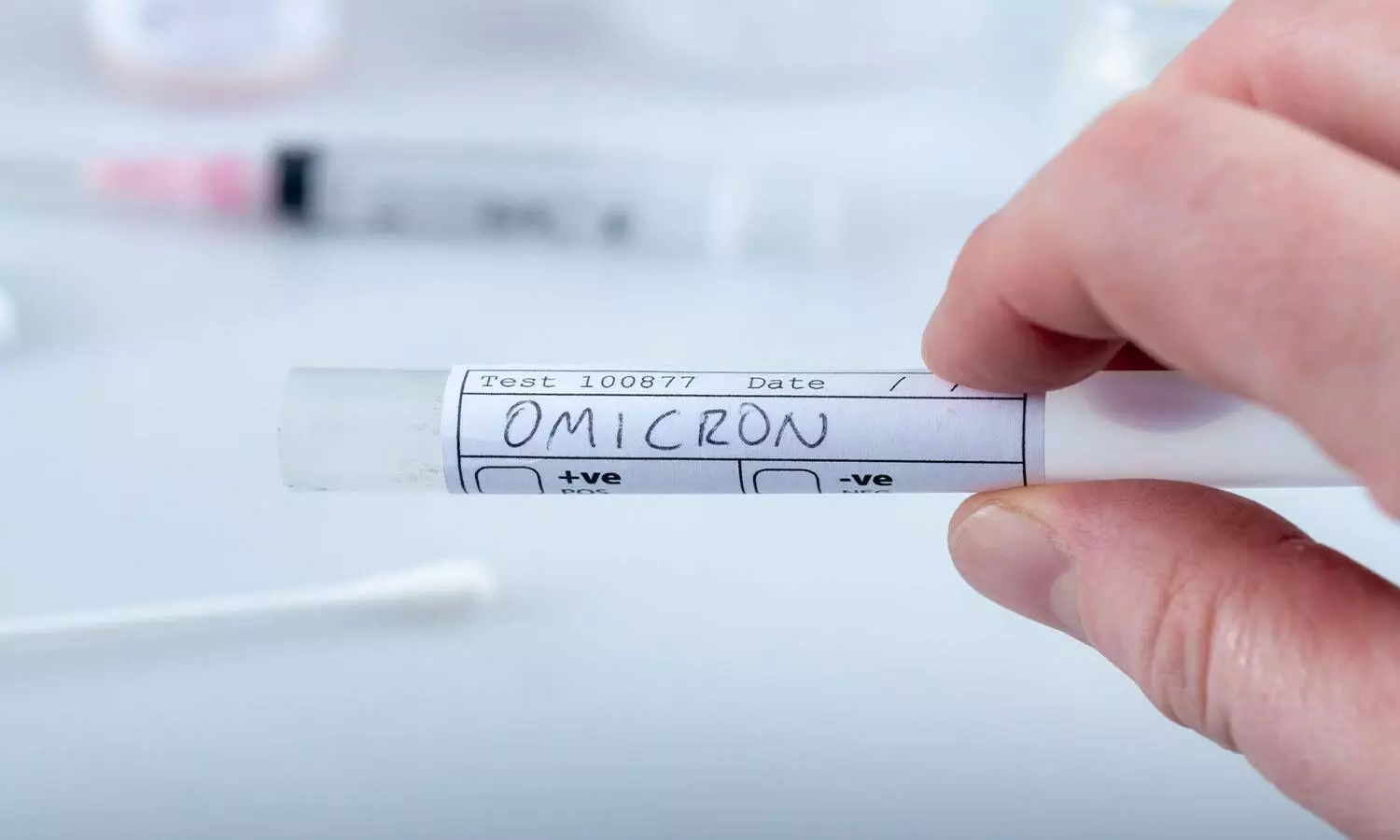Explained: Omicron – The Covid `Variant of Concern'
The WHO has named the new SARS-CoV-2 `B.1.1.529' `Omicron'. The new variant was first detected in South Africa on November 24.
By Sumit Jha
Hyderabad: World Health Organization has declared a new Covid 19 strain as `Variant of Concern' (VOC). It has sparked fear around the world.
The WHO has named the new SARS-CoV-2 `B.1.1.529' `Omicron'. The new variant was first detected in South Africa on November 24.
"Early analysis shows that this variant has a large number of mutations that require and will undergo further study. It'll take a few weeks for us to understand what impact this variant has. Researchers are working to understand more," said Christian Lindmeier, Spokesperson, WHO on new COVID variant
In an urgent note to state governments on Thursday, Health Secretary Rajesh Bhushan had said the emergence of the new variant had "serious public health implications", and asked them to increase vigilance.
This Covid19 variant could potentially be more dangerous than even the Delta variant. It has prompted several countries to impose restrictions on travel from affected regions and caused stock markets across the globe to crash. On Friday, the last day of trading this week, the Bombay Stock Exchange benchmark index Sensex took a dip dive of 1688 points.
India, which on Friday announced the resumption of routine international air services from December 15, said it would step up screening of flyers, especially those from affected countries. Apart from South Africa, Omicron has been detected in Israel, Malawi Botswana; Belgium, and Hong Kong.
Omicron: New Variant of Concern
According to World Health Organisation, the B.1.1.529 variant was first reported to WHO from South Africa on 24 November 2021. The epidemiological situation in South Africa has been characterized by three distinct peaks in reported cases, the latest of which was predominantly the Delta variant. In recent weeks, infections have increased steeply, coinciding with the detection of the B.1.1.529 variant. The first known confirmed B.1.1.529 infection was from a specimen collected on 9 November 2021.
This variant has a large number of mutations, some of which are concerning. Preliminary evidence suggests an increased risk of reinfection with this variant, as compared to other VOCs. The number of cases of this variant appears to be increasing in almost all provinces in South Africa. Current SARS-CoV-2 PCR diagnostics continue to detect this variant. Several labs have indicated that for one widely used PCR test, one of the three target genes is not detected (called S gene dropout or S gene target failure) and this test can therefore be used as a marker for this variant, pending sequencing confirmation. Using this approach, this variant has been detected at faster rates than previous surges in infection, suggesting that this variant may have a growth advantage.
WHO further said that the Technical Advisory Group on SARS-CoV-2 Virus Evolution (TAG-VE) is an independent group of experts that periodically monitors and evaluates the evolution of SARS-CoV-2 and assesses if specific mutations and combinations of mutations alter the behavior of the virus. Based on the evidence presented indicative of a detrimental change in COVID-19 epidemiology, the TAG-VE has advised WHO that this variant should be designated as a VOC and the WHO has designated B.1.1.529 as a VOC, named Omicron.
What is Variant of Concern (VoC)
A SARS-CoV-2 VOC is a strain that meets:
With genetic changes that are predicted or known to affect virus characteristics such as transmissibility, disease severity, immune escapes, diagnostic or therapeutic escape;
That has been identified as causing significant community transmission or multiple COVID-19 clusters, in multiple countries with increasing relative prevalence alongside an increasing number of cases over time, or other apparent epidemiological impacts to suggest an emerging risk to global public health.
Increase in transmissibility or detrimental change in COVID-19 epidemiology; or
Increase in virulence or change in clinical disease presentation; or
Decrease ineffectiveness of public health and social measures or available diagnostics, vaccines, therapeutics
WHO advisory for the countries
The World Health Organization has advised enhancing surveillance and sequencing efforts to better understand circulating SARS-CoV-2 variants. Also, submit complete genome sequences and associated metadata to a publicly available database, such as GISAID.
Who further asked to report initial cases/clusters associated with VOC infection to WHO and where capacity exists and in coordination with the international community, perform field investigations and laboratory assessments to improve understanding of the potential impacts of the VOC on COVID-19 epidemiology, severity, the effectiveness of public health and social measures, diagnostic methods, immune responses, antibody neutralization, or other relevant characteristics.
Who has asked individuals to take measures to reduce their risk of COVID-19, including proven public health and social measures such as wearing well-fitting masks, hand hygiene, physical distancing, improving the ventilation of indoor spaces, avoiding crowded spaces, and getting vaccinated.